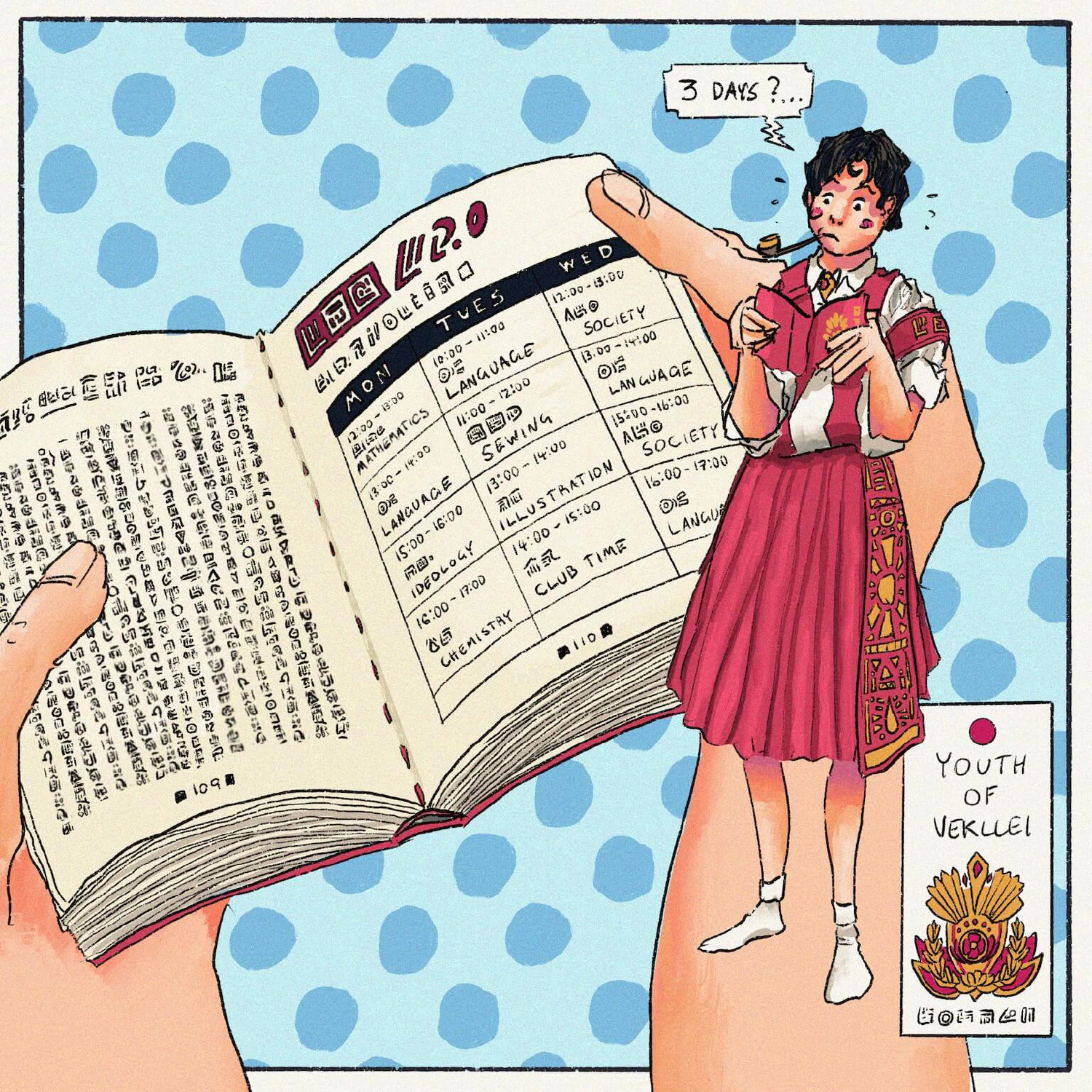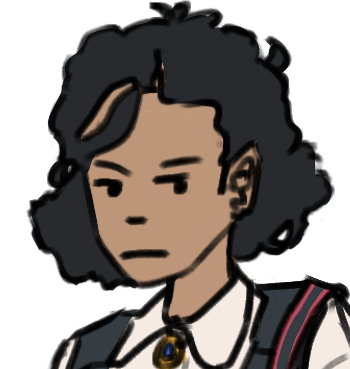NEW Story: Sunday Morning
A Vekllei Timetable

This article is not part of Vekllei canon. It may be old, obsolete or just a bit of fun.
Let’s wind down Study Month with a look into the Vekllei curriculum. A few days ago I wrote about how Vekllei schools operate on fundamentally different assumptions about what it means to be ‘a child’. Let’s take a look at how that pans out in practice.
Most students study about 3-5 days a week, depending on the taste of the student and the work timetable of their parents. These days might occur sequentially or be scattered throughout the week, but most common is a Monday-Wednesday table table of four hours a day.
Tzipora, whose previous schooling was in a Catholic school in California, struggled to make sense of her timetable at first. The Vekllei curriculum very quickly depreciates courses outside of the interest of the student, and so staples of modern Western education — science, history, mathematics, language, were jumbled and in some cases dropped altogether.
Let’s break down her timetable, illustrated partially in English for your convenience.
- Mathematics. Zelda struggles with even basic maths, and so she retains a course for her own wellbeing. Mandatory curriculum maths in Vekllei is mostly pragmatic and straightforward, and teaches theory as well as the basics of calculation and operations. More abstract maths like algebra and calculus are generally only taught in advanced classes designed to facilitate interest in those who show promise in it. Zelda is not one of them.
- Language. Zelda is an immigrant and at this point in her life speaks only primitive, conversational Vekllei. Because of this, she has three hours of class time a week but attends a special class for tutoring after school each day. She also makes use of her own time to study Vekllei logographs, called Topet. Baron is a good help because she can practice conversationally with him without the shame of mangling language in the real world.
- Ideology. Zelda for the first time in her life is beginning to engage with the world as a global network, and is quickly learning geography and flags to illustrate it in her mind. The Ideology class is concerned with worldview and how social structures influence it. It looks at traditional political ideologies as well as unconscious assumptions, and how those things affect policy and geopolitics.
- Chemistry. Zelda likes chemistry and has good grades in it, and so she’s testing her ability in that area. Although she’s clearly developed an aptitude for the arts and language, she’s young enough to doubt her place and still enjoys experimenting with disciplines outside her expertise.
- Sewing. Zelda likes sewing, and it helps her feel useful since she’s largely dependent on others for most other parts of her life. This class teaches young Vekllei people practical skills for maintaining clothes in the household. Next year, she plans to take on a more rigorous maintenance course to varnish wood and caulk windows, since it takes forever to get a contractor up to their apartment.
- Illustration. Zelda does not have enough of an ego to be intimidated by the skills of those around her, so she enjoys the class as a therapeutic outlet for her boundless creative impulses. She is trying to learn to draw portraits so she can do one of Baron for Christmas.
- Club time. Zelda belongs to the news club of Lola 7th School, and works on weekends as a photographer for the weekly newsletter. Her colleagues are polite and ambitious, and they appreciate her desire to learn. On school time she mostly meets with other members to help print the newsletter by hand on the old jobber press, and develop her photos in the school’s dark lab.
- Society. Zelda learns Vekllei history and values in this class, which helps explain everything from the intricacies of the Bureau System and Sundress Municipalism to more intimate notions of the proper way to wear a quarter-pleat and semoisnesne (sun-facing attitude). It also helps contrast Vekllei’s system against the rest of the world, and more explicitly outlines Vekllei’s place in it.
Although Tzipora would have many troubles with school, none of them were ever related to her enthusiasm for her classes. Since she picked the ones that benefited her and had plenty of time off to explore the skills learned in them, she developed a healthy curiosity for her talents and it was reflected well in her grades. But, as most Vekllei students will tell you, they learn just as much growing up outside of school as they do inside the classroom. She would not have it any other way.
